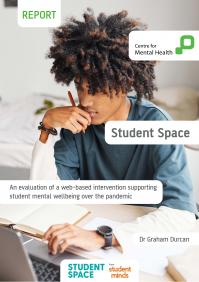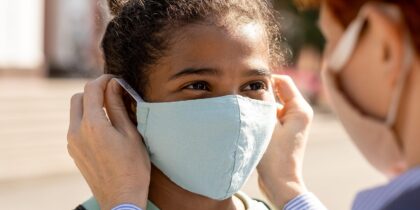An evaluation of a web-based intervention supporting student mental wellbeing over the pandemic
Dr Graham Durcan
Students in higher education have been dramatically impacted by the pandemic and restrictions. According to an ONS survey conducted during the 2021 summer term, 29% of students had used a service to support their mental health.
Student Space is based on Centre for Mental Health’s independent evaluation of Student Space, which was launched by Student Minds in August 2020 to support the mental wellbeing of students during the pandemic. The report finds that the platform was a valuable extra resource for students’ mental health, and offered a high quality, rapid response to a crisis when it was set up in 2020.
Student Space highlights that students have faced major challenges to their mental health since March 2020, with more anxiety and lower life satisfaction than the general population. However, it also finds that not all students were impacted equally by Covid: some groups of students experienced greater challenges, including students from racialised communities, students with disabilities, international students, and students from disadvantaged backgrounds, highlighting the need for ongoing, tailored support.
Student Space includes advice and information on coping with mental health difficulties and the challenges of student life during Covid restrictions, such as loneliness and digital wellbeing. It also provides specific support services and resources tailored to specific groups, including Black students, Muslim students, Punjabi students, Trans students, working-class students and students affected by specific mental health difficulties. The report argues that Student Space should continue to be funded to give students additional support for their mental health, alongside universities’ own mental health and wellbeing services. There is an ongoing need for accessible, readable and targeted mental health advice and signposting for students, and that is likely to last well beyond the most acute phases of the pandemic.







